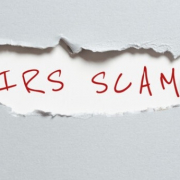Taxpayers Could Face Financial Penalties For Following Bad Advice, IRS Warns
Thousands of taxpayers that followed inaccurate advice on social media or were victims of tax scams could face financial penalties, the Internal Revenue Agency has warned.
Tax officials said that they have ongoing concerns about matters that led to some taxpayers filing inflated claims for refunds during the past tax season. Scams focused on the Fuel Tax Credit, the Sick and Family Leave Credit and household employment taxes.
Myths that it is possible to get huge tax refunds that claimants for which claimants are not eligible continue to circulate and the IRS says that those who have filed for these refunds may face delays, a requirement to prove their eligibility, potential audits, financial penalties, and large financial penalties.
“Scam artists and social media posts have perpetuated a number of false and misleading claims that have tricked well-meaning taxpayers into believing they’re entitled to big, windfall tax refunds,” said IRS Commissioner Danny Werfel. “These bad claims have been caught during our fraud review process. Taxpayers who filed these claims should realize they’ve been tricked, and they face an extensive review process and a long potential wait if they’re owed a refund for other things.”
The three most common scams or inaccurate advice relate to:
- Fuel Tax Credit: this is intended for those with off-highway businesses or farming businesses with eligible expenses.
- Credits for Sick Leave and Family Leave: this was only available for tax years 2020 and 2021 during the pandemic and only for self-employed people. The IRS is seeing repeated incidences of taxpayers using the appropriate form to claim a credit for employee income rather than self-employed income.
- Household employment taxes: with tax filers claiming refunds based on fictitious household employees.
“These improper claims have been fueled by social media and people sharing bad advice,” Werfel said. “Scam artists constantly prey on people’s hopes and try to use the complexity of the tax system to convince people there are secret ways to get a big refund. These three credits illustrate that it’s important to carefully review the tax return for accuracy before filing and rely on the advice of a trusted tax professional, not some fly-by-night preparer or a questionable source they hear on social media.”
If taxpayers are aware that they have filed inaccurate claims, they should use the irs.gov tool Should I file an amended return? to determine if they should amend their return. If they submit an amended return, they do not need to visit a Taxpayer Assistance Center.
Some legitimate claimants may receive a letter from the IRS asking them to verify their claim and should provide the necessary documentation to do so or speak to a tax professional.
Source: Investment News







